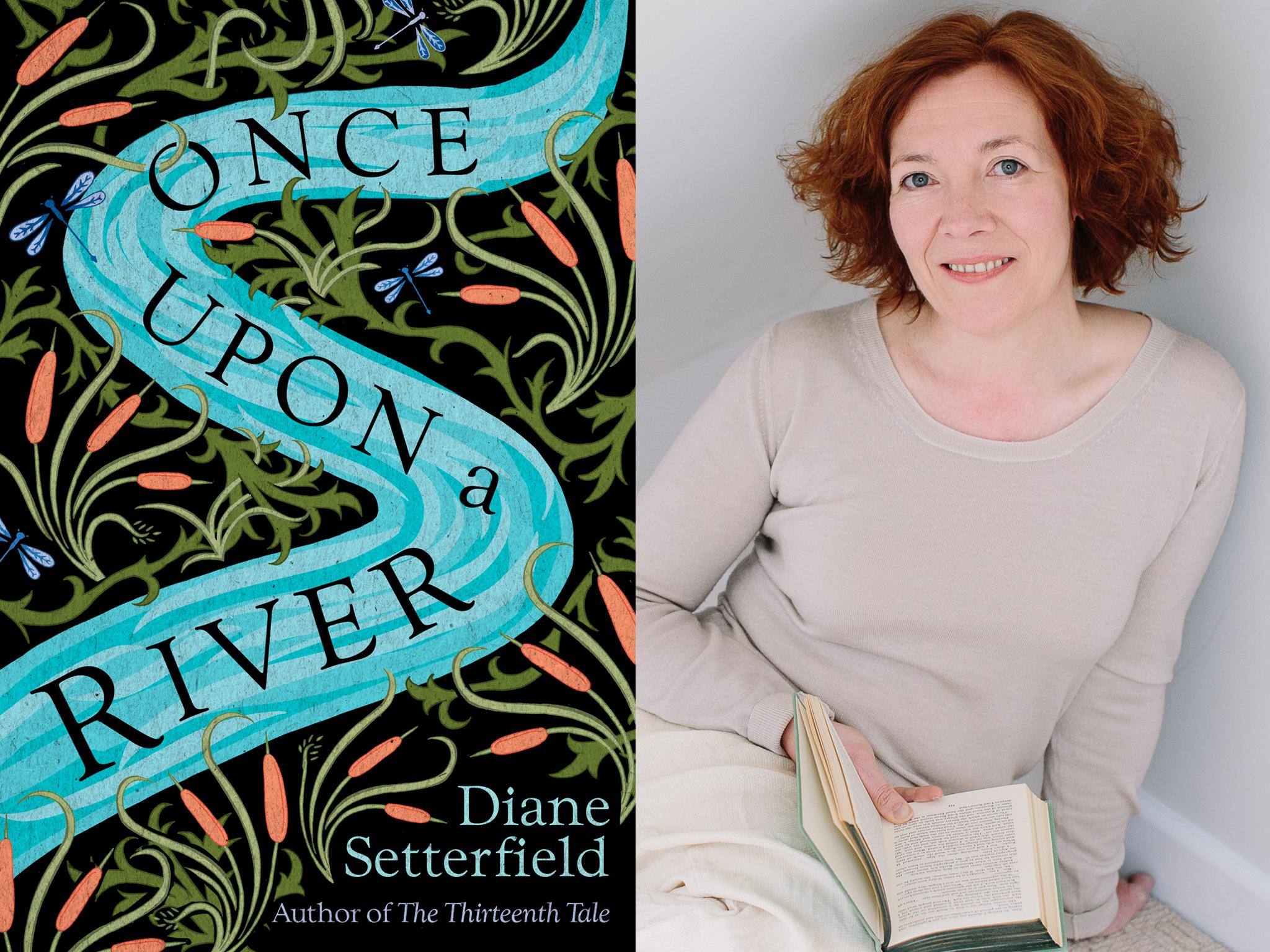Once Upon a River by Diane Setterfield review: A tale of loss that has a dazzling beauty
In her third novel, Setterfield continues to demonstrate her mastery in making the Gothic appeal to modern readers

Your support helps us to tell the story
From reproductive rights to climate change to Big Tech, The Independent is on the ground when the story is developing. Whether it's investigating the financials of Elon Musk's pro-Trump PAC or producing our latest documentary, 'The A Word', which shines a light on the American women fighting for reproductive rights, we know how important it is to parse out the facts from the messaging.
At such a critical moment in US history, we need reporters on the ground. Your donation allows us to keep sending journalists to speak to both sides of the story.
The Independent is trusted by Americans across the entire political spectrum. And unlike many other quality news outlets, we choose not to lock Americans out of our reporting and analysis with paywalls. We believe quality journalism should be available to everyone, paid for by those who can afford it.
Your support makes all the difference.Diane Setterfield’s debut novel, The Thirteenth Tale, came out in 2006 to wide acclaim. She made her mark by delivering her own take on the classic romantic mystery novel, infused with the spirit of Jane Eyre, Rebecca and The Woman in White. Once Upon a River continues to demonstrate her mastery of the Gothic genre in a way that will appeal to modern readers.
It all begins at an inn, the Swan at Radcot (about 20 miles from Oxford, where Setterfield lives), on the evening of a winter's solstice in the 19th century. A man comes in, bearing horrific injuries, interrupting the regulars’ chatter. He’s carrying “a large puppet, with waxen face and limbs and sickly painted hair”. Except it’s not a puppet, it’s a little girl and she’s dead, clearly dead – until she’s not.
This mysterious creature, certain to fuel the Radcot rumour mill, is also a child who must now be returned to her family. Three lay claim to her. The girl – depending on who you believe – is the kidnapped daughter of a local couple. She’s a farmer’s illegitimate grandchild. No, she’s the dead sister of a bereft housekeeper. One thing seems certain – or as certain as possible in a world where appearances can seldom be trusted – the girl came from the river.
Running through the centre of the story is the Thames. It controls the atmosphere of this Gothic novel as it does the climate of Radcot; it eats the living and sometimes spits out the dead. And Setterfield’s writing meanders like the waterway that animates it; tumultuous at times, tranquil – one might say slow – the next. Setterfield’s narrator says it herself: “A river no more begins at its source than a story begins with the first page.”
Setterfield likes to address the reader directly. She’s a performative storyteller who will occasionally remind you of your place as a spectator. “Did the solstice have anything to do with the strange events at the Swan? You will have to judge for yourself,” she writes.
Her female characters are beautifully nuanced. Rita Sunday, an independent-minded nurse who has had a front-row seat to the horrors of childbirth and believes she’s “more use to the world as a nurse than as a wife and mother”, is what heroines are made of – although her ultimate fate may disappoint some readers. As villagers wonder who the little girl belongs to, Setterfield asks: does it really matter, since in a few years, she will be the property of her husband anyway?
Once Upon a River is a story of loss, and how the missing keep living inside of us. Setterfield describes grief at times with dazzling beauty, such as when she writes of a man finally coming to terms with his daughter’s kidnapping: “He saw her not here in this room and not now in this hour, but in the infinity of memory. She was lost to life, but in his memory she existed, was present, and he looked at her and her eyes met his and she smiled.”
There is plenty of room in Gothic literature for supernatural events, but Setterfield leaves no storyline unresolved and ultimately offers rational ways to explain the unexplainable. This is a long novel, at times slightly hard to follow, and readers might have to flip back through earlier chapters in order to understand every detail. But Setterfield (who has a PhD in French literature from the University of Bristol) knows how to make the words sing. It is worth taking a journey down the Thames with her.
‘Once Upon a River’ is published by Doubleday on 17 January, £12.99
Join our commenting forum
Join thought-provoking conversations, follow other Independent readers and see their replies
Comments